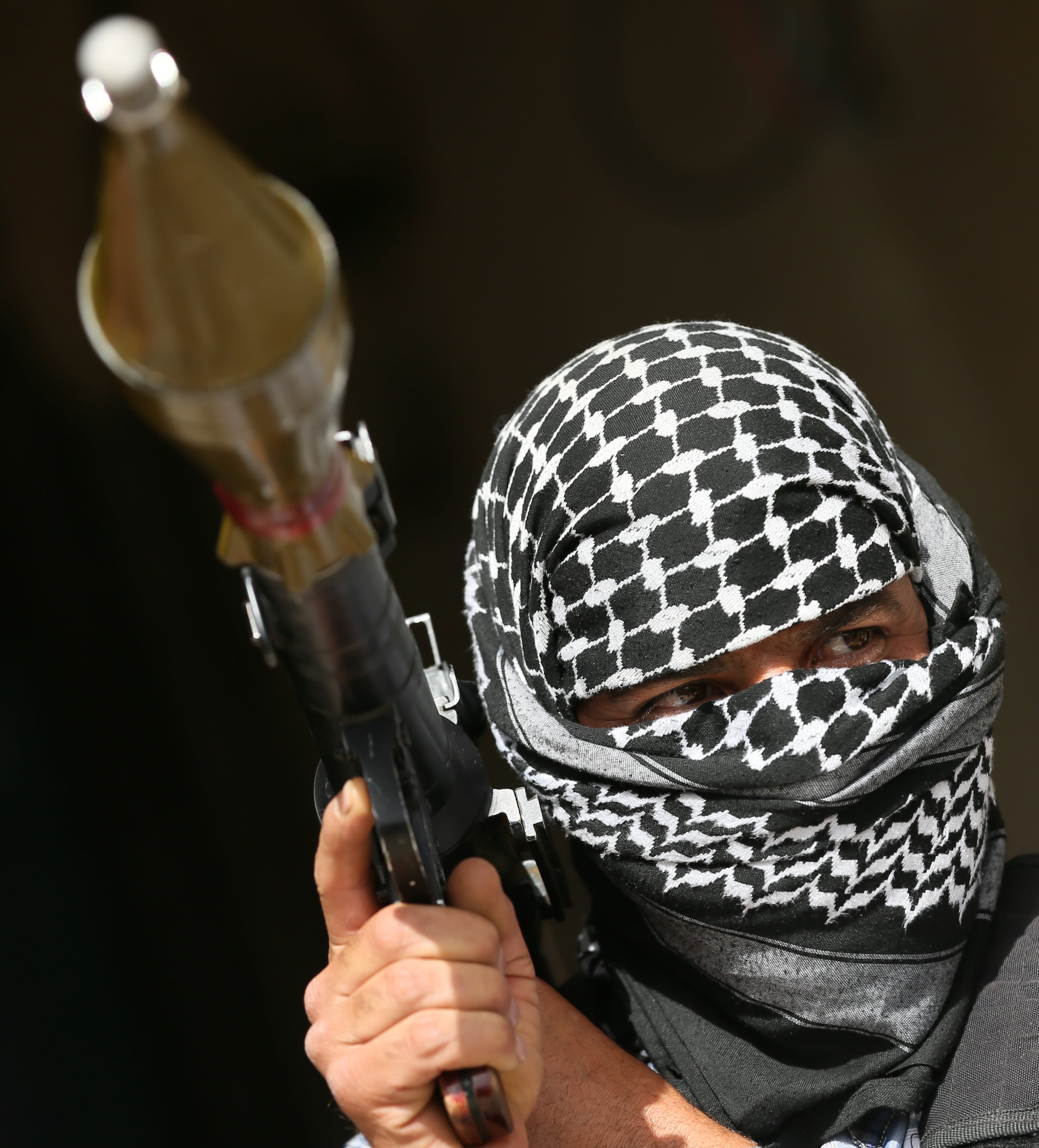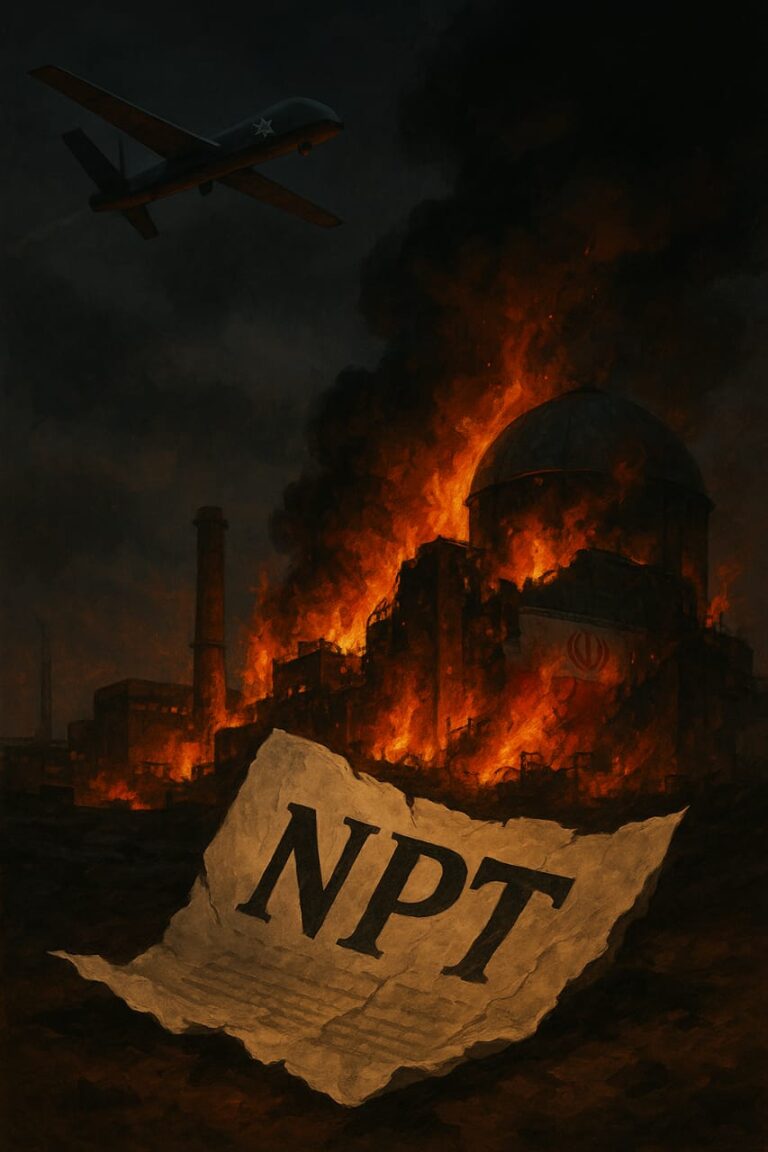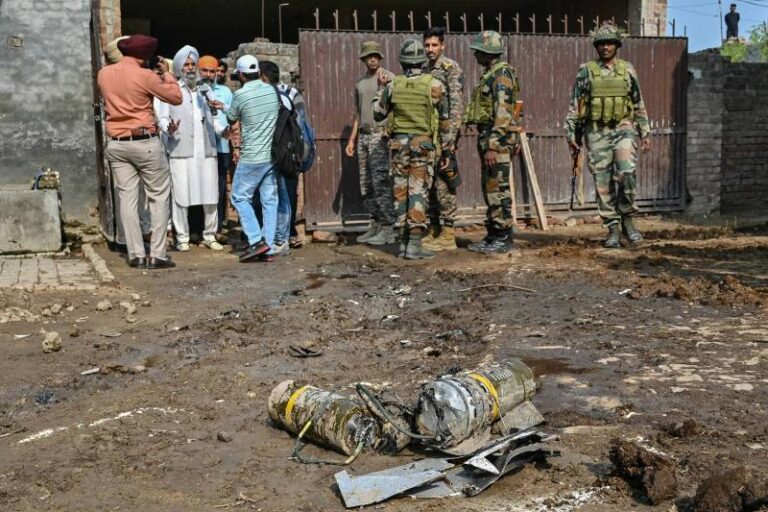
Source: AFP
Qadir Khan Yousafzai
The genesis of the Islamic State (ISIS), the world’s wealthiest and the strongest terrorist group, is traced back to the U.S. invasion of Iraq in 2003. When Al-Qaeda formed its Iraq chapter, it provided a platform based on financial benefits to martial but jobless soldiers of the Saddam era. In 2004, another group, Al-Zarqawi also adopted the stance of Al-Qaeda and coined it “Iraqi Al-Qaeda”, which then began assassinations of famous personalities, attacks on mosques, graves, temples and public places on the basis of sectarianism. Its basic purpose was to increase the intensity of sectarian conflict between the Shias and the Sunnis resulting in civil war. ISIS followed suit and did irreparable damages. Like it is believed that the US played a crucial part in the launch of (present day) Al-Qaeda in Afghanistan against Soviet Union in 1980, similarly Islamic State of Iraq and Syria was made functional in Iraq. It created insurgency on the basis of sectarianism, which outrightly defied Islamic laws, spawning hatred amongst Muslims, alongwith projecting the fatal idea that all except one sect are apostates thus deserving murder. After establishing its dominance over Iraq and Syria, ISIS with its brief acronym exhibited high aims. On the basis of the formation of an Islamic state, the renowned leader, Abu-Bakar Al-Baghdadi declared himself caliph. Numerous assassination attempts were made but he escaped death every time. Recently, with the announcement of a new branch, Al-Baghdadi’s statement also caught the limelight, although his whereabouts are still unknown.
ISIS’ branches are scattered all over the world under different aliases. The plague of ISIS has not yet died down, rather several western as well as many Muslim states are under its direct threat, becoming victims of its insurgency each day. ISIS operates differently in every state with unique agenda for every state. It is apparent by observing the number of supporters of ISIS in Western and Muslim countries.
Several branches of ISIS are busy in terrorist activities in various countries, some notable ones include Daish Bangladesh (FTO, SDGT), Daish Philippines and the Maute Group, Daish in West-Africa, Daish in Somalia, ISIS Jund-ul-Khalifa in Tunisia, Daish in Egypt, Libya, Saudi Arabia, Yemen, Jund-ul-Khalifa Algeria, Daish in Caucasus Province in Russia, and Daish in Al-Khorasan Province in Afghanistan and Pakistan, Daish in Sinai Province. Other ISIS affiliated groups include Jammaah Anshorut Daulah (JAD), Yarmouk Martyrs Brigade (YMB), Santoso (MIT),Mujahidin Indonesian Timur (MIT) and, Jaysh Rijal al-Tariq al Naqshabandi (JRTN).
According to a 2016-2019 report, in 2018 alone, ISIS had taken responsibility for 132 suicide attacks in Iraq, Syria and Libya. There is a 75 -state coalition working in different countries against ISIS. But ISIS claims that it has weakened the coalition and between 2016 to 2019, it has killed, 31,956 Iraqi security personal, 11,977 soldiers of Bashar al-Assad’s security forces, 11,418 Kurd fighters, 3,621 Malaysian soldiers, 159 soldiers of Turkish security forces, 79 Russian soldiers, 70 American soldiers and 59 Lebanese soldiers. In its attacks, it claimed to have destroyed 38 helicopters, 256 drones, 26 aircraft, more than 1,400 military transport vehicles along with destruction of large number of anti-tank and anti-aircraft ammunition.
Iraq and Iran have claimed victory against ISIS in Iraq and America has claimed victory against ISIS in Syria. Given these successes, ISIS has had to relocate in different countries. In refugee camps, many people from eastern Syria after having renounced their allegiance to ISIS are waiting to go back to their countries. ISIS promotes terrorism and chooses its targets accordingly. After losing in Iraq and Syria, some ISIS terrorists chose their own countries to go back to but some started new adventures and opened new branches in other countries. ISIS enlisted people by promising them huge amounts of money. People who had secretly joined ISIS have now returned back to their original countries. They have secretively opened sleeper cells of ISIS for their own financial gains, enlisting people to join, confessing perpetrating attacks in other countries. Countries with fragile internal and external political and security situation were best suited for these new ISIS recruits. Bangladesh is a glaring example. When Bangladesh’s Jamaat-e-Islami was banned from taking part in politics, many new extremist groups influenced by Daish and Al-Qaeda surfaced in Bangladesh around 2011. The most notable among them are Ansarullah Bangla Team and Jamat-ul-Mujahideen who started killing teachers, journalists, bloggers and writers. Shia Imambargahs were also targeted for the first time through bomb blasts. ISIS Bangladesh claimed responsibility for several bomb blasts in Bangladesh. Continuing political instability has added to debilitating security conditions in Bangladesh providing ISIS the space it needs to grow.

Philippines has been one of the favorite spots for ISIS to dig its heels in. Philippines provides ISIS the geographical reach it needs to enter various Muslim countries. In 2016, through a video message, South Eastern Asians were told to go to Philippines instead of Syria. In 2017, pro-ISIS militants took control of Marawi city in southern Philippines. The Philippines government troops fought with the local pro-ISIS Maute Group and Abu Sayyaf to regain control of Marawi after a long battle in which thousands of people got killed and huge infrastructural damage badly destroyed the city. In addition to Philippines, pro-ISIS groups have presence in Indonesia and Malaysia.
ISIS-SP (Sinai Province) is active in the Sinai peninsula in Egypt. The Egyptian security forces are constantly fighting with ISIS-SP. However, there have been several conspiracy theories about Israel having a ‘sinai plan’ of sorts whereby Palestinians could be adjusted there. Egypt has categorically denied that it will not give even an inch of its territory to anybody. The conspiracy theorists detail a connection between Israel and ISIS given that the latter has never attacked Israel. ISIS in one of its video confessions addressed this issue, saying that they will not let the Palestinian cause overshadow their own movement and an attack on Israel will make sure that the former happens. For now, Egypt is trying to fight ISIS-SP in the region even though it has a weak political government with not much successes against ISIS in the Sinai Peninsula.

Several governments have said to use ISIS for their benefits and along with US Syria and Turkey , the country said to have been named as the financial benefactor of ISIS is Libya. The anti-corruption department in Syria received a report from Shauhda-e-Sirate-ul-Kharya that ISIS was receiving financial support for rehabilitation for damaged houses. According to the report, this financial support to Sirate continued till 2016 by the government and through this the third most important leader, Mohammad Imraj bil Qasim Aljwani also gained benefits. After the independence of Sirate, Mohammad Imraj bil Qasim Aljwani was arrested. During investigation, commander of ISIS, Aljawani confessed that they have been getting financial aid from Abdul Hakim Belhaj who bought ammunitions to stop the Libyan forces from entering Sirate.
ISIS shifted its training center of terrorism to Afghanistan due to populated surrounding. Plans of terrorist activities in Pakistan were devised in Afghanistan’s Khorasan region. However, it has not been able to gain roots in Pakistan. The ISIS Khorasan chapter was driven away from Balochistan with the help of security agencies. But ISIS still has room to survive in Afghanistan and will always remain a threat to Pakistan. ISIS has taken responsibility for many terrorist activities in Afghanistan. It is obvious that the former Afghan President, Hamid Karzai has blamed the US for supplying ammunition and military equipment to ISIS in Afghanistan since it wanted to help ISIS to pressurize China, Turkmenistan and Russia.
The threat of ISIS is far from over. Hence, there is a need to follow Sun Tzu’s advice, know thy enemy. To understand the ideology of those who support ISIS and those who are against ISIS, there is a need to understand the appeal of its universal ideology. As the former General of US Central Command, Joseph Votel warned that even after ISIS’ last defeat in Syria, the ISIS threat is far from over. During a committee briefing before US Senate, General Votel stated that, “for complete elimination of ISIS, there is a need to understand its ideology better” for if that is not the case, this group has the potential to generate more violence in the name of extremism.
Qadir Khan Yousafzai is a Columnist at Jehan Pakistan.




